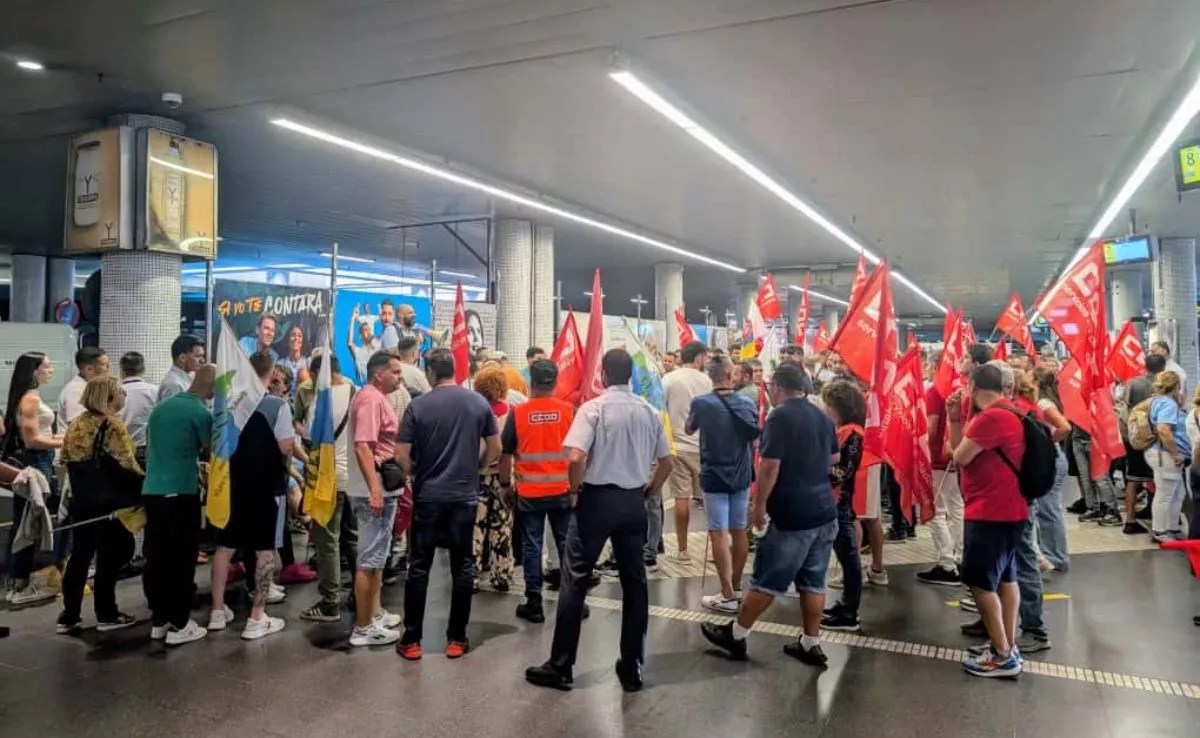
Alfonso Cabello states that the new protocol has not yet been fully implemented and that the aim is to undertake “tasks more effectively”.
SANTA CRUZ DE TENERIFE, 16 Sep. (EUROPA PRESS) –
The spokesperson for the Canary Islands Government, Fernando Clavijo, has condemned the “punishment” that the central Government is inflicting on the islands by considering taking the new protocol for the care of migrant minors to the Constitutional Court. This protocol aims to “ensure the best” for the children arriving in the islands.
During a press briefing to communicate the decisions of the Government Council, he lamented that the President of the Canary Islands, Fernando Clavijo, who asked to address the inter-ministerial commission on Tuesday “in writing”, was denied entry.
“It is unacceptable to target the Canary Islands,” he asserted, highlighting that the Government is due to meet with four ministers shortly to discuss the protocol for minors in the Canary Islands but not to propose “urgent solutions.”
In this vein, he remarked that the president wishes to “provide explanations” regarding the “overall overflow” of the reception network on the islands, but he has been informed that “the agenda is fixed”, notwithstanding the fact that he will be in Madrid on Tuesday dealing with various agenda items.
Cabello expressed that “the situation is one of neglect and apprehension” but made it clear that the minors “are being looked after” — with 149 more arriving this month alone — although he acknowledged that the new protocol, which amends the national protocol from 2014, is not being fully enacted.
“We are making progress,” he stated, yet he recognises that the current circumstances differ from those a year ago, with the island of El Hierro having a facility designed for 150 minors, yet currently accommodating 285, resulting in “pressure and strain” to welcome more minors.
“What we have achieved is that processes have begun to clarify and conditions have improved somewhat, but they have not been addressed in depth,” he elaborated.
He insisted that the Canary Islands are providing care for the minors “independently” while extending a “helping hand” to the Government, which he has done by “strongly criticising” both the protocol for minors and the migration agreement with the PP, which encompasses the amendment of immigration law and garners support from up to 14 autonomous communities.
“The Canary Islands and the children are the victims; the Canarian people cannot endure continued neglect,” he proclaimed.
Cabello regretted that it “saddens” him that four ministries convene to consider the protocol for minors while the archipelago has awaited a resolution to the migratory crisis “for 13 months”. There is also no simulation available regarding the carrying capacity that each autonomous community might have in order to receive appropriate financial compensation.
The government spokesperson also noted that “it is not merely about funding, but it is crucial to remunerate the professionals, the NGOs, and the entire system,” and that the required resources have yet to be mobilised.
He characterised the migration crisis in the archipelago as one of “extreme stress”, with public servants either on leave or resigning from their roles, prompting him to question “how many centres would be necessary” to ensure the complete reception of minors.
THE EU SHOULD “DIRECT ITS ATTENTION TO THE CANARY ISLANDS”
Furthermore, he indicated that “the sole solution is to revise the immigration law” and, with the support of the PP, if the PSOE were to “step up”, 308 deputies along with all the autonomous communities would unite. “The Canary Islands do not require additional tension or legal disputes,” he explained.
Concerning the visit by the Vice President of the European Commission, Margaritis Schinas, to the islands, he stated that the purpose is for the EU to “direct its focus towards the Canary Islands” and understand the situation first-hand, similar to the anticipated visit of Pope Francis.
“Europe must respond and develop the asylum pact; the Canary Islands must be on the agenda, and we hope to achieve significant advancements during the visit,” he emphasised.
“We are drained, fatigued, overwhelmed; it is no longer just political tension. The Canary Islands require a solution as the situation is critical; we are unable to guarantee the safety of the minors or their education,” he stated.
The spokesperson also remarked that they viewed it positively that a Canarian minister, like Ángel Víctor Torres, is overseeing migration policy and expressed hope that “rationality prevails” and a resolution will be reached, even if Tuesday’s inter-ministerial meeting turns out to be disappointing.
















